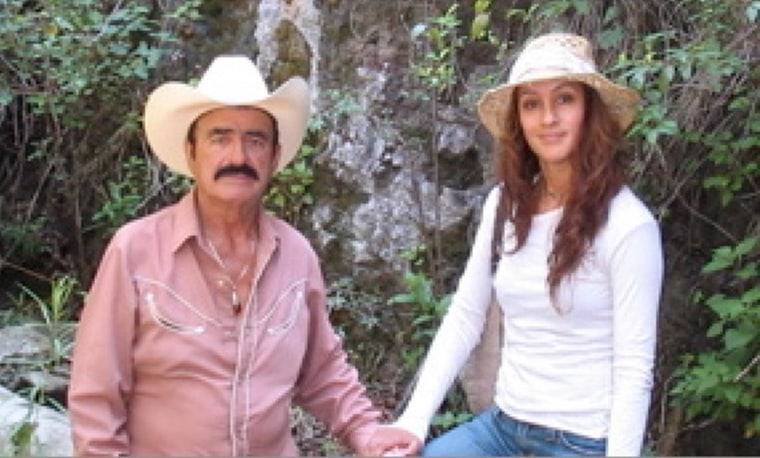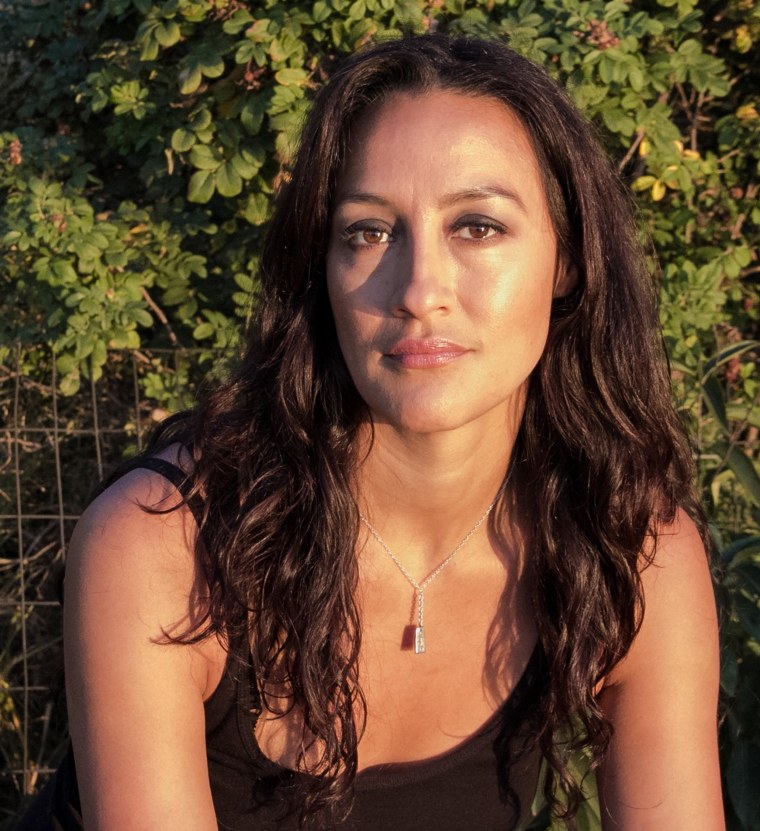NEW YORK, NY -- At nine years old, Maria Venegas dreaded those occasions when her father returned home with his friends after a late night out drinking. Her father would call her to come to him and then announce, “This one should have been a man!” Next, he would take out his .45 and point it at his daughter’s forehead while she stood completely still. “She’s got nerves of steel!” her father would proudly declare.
Such harrowing episodes were part of everyday life for Venegas, author of the memoir, “Bulletproof Vest: The Ballad of an Outlaw and His Daughter.” It is the story of her tumultuous relationship with her father Jose Venegas, a larger-than-life character who almost defies description. He was a vaquero (cowboy) who broke horses and raised cows, all the while living a dangerous and destructive life. He was an alcoholic, deadbeat dad who abandoned his wife and eight children after shooting a neighbor. He was alternately tough and tender, present and absent from his daughter’s life.
It took fourteen years of estrangement before Venegas went to Mexico to reconcile with her father. “When I went back and started spending summers and holidays with my father, we would get up and go riding at 4 AM.," said Venegas. "Back then, the old hacienda and the ranch, really had not changed much. My father would point at a tree and tell me what had once happened at that spot. He started sharing stories. And the more he opened up, the more I started to understand why he had lived such a violent life. I started to write down his stories, thinking I would write a novel about him, and it became a memoir,” Venegas said.
Maria Venegas' father lived life like a Mexican corrido - a ballad about outlaw life. He was a vaquero (cowboy) who broke horses and raised cows, killed a man, abandoned his family, survived an armed ambush, was thrown off a wild horse, was stabbed by Mexican police and survived a kidnapping by a notorious cartel.
Reviewing “Bulletproof Vest,” The New York Times describes Jose Venegas as “a man who seems to have walked out of his own corrido,” referring to the Mexican folk ballads that serve as odes to the life and times of an outlaw. And for her literary corrido, Venegas had plenty of material. Her father was only 12 when his mother handed him a gun and told him to always protect himself. As an adult, Venegas’ father shot and killed his brother-in-law. In addition, he survived an armed ambush, being thrown off a wild horse, a stabbing by the Mexican police, and a kidnapping by a notorious cartel.
Her father’s lifestyle took a lasting toll on Venegas. Her brother, three uncles, and grandfather all died violent deaths. Still, she notes that she inherited her father’s strength and bravado. “He was the swagger in my stride,” she writes, “the reason why I had… attitude, though it was the same attitude that often got me in trouble.”
Born in Mexico, Maria Venegas was four years old when her parents emigrated to the U.S., leaving her with relatives. “They thought they would be gone for a few months, it ended up being two years,” she said. “My grandmother told me I asked to go home every single day, I missed my parents so much. Finally she took me to our old house, just to show me that they were really gone. And I went silent. I stopped talking, completely, for about a month… I didn’t realize the emotional impact that their leaving had on me, until I was thinking and writing about my childhood.”
After rejoining her parents in the U.S. (courtesy of a “loaned” birth certificate) Venegas grew up in the Chicago suburbs, the only Latina in her eighth grade class. During high school, her mother suggested that she drop out to work at K-Mart. Instead she continued her studies, later earning an MFA from New York’s Hunter College.
She chose the title “Bulletproof Vest” because her father wore one to protect himself from his many enemies. Midway through her writing process, she realized that the term had a double meaning. “The title applies to me, too. Growing up, I learned to be tough, to grow up fast – to have my own metaphorical bulletproof vest, so no one could hurt me.”

Venegas said that most of her family has not read her book because it is too emotionally difficult for them. Her mother, though, read one of her stories about her father (translated into Spanish) and liked it.
In 2009, shortly after Venegas sold her book, her father died in a car wreck in Mexico. He was 69. His death, ironically, made “Bulletproof Vest” even more like a corrido – because they are traditionally written about someone who is dead.
“My book is a very personal story, but so many people have come and said they relate to it. They say it reminds of them of their dad, or another family member. And to me, that is beautiful.”
These days, Venegas is busy with readings and her work at Still Waters In A Storm, an arts program for underprivileged children in Brooklyn. She also recently became a U.S. citizen.
“Sometimes, I wish my father were alive. I feel fortunate that I got to experience his world, his Mexico. The rancho, the farm, the horses, that is all gone now,” she said. “Those memories are priceless to me.”
And despite their convoluted personal histories, Venegas remains grateful to her dad. “There are a lot of people who grow up without a father, or who never get the chance to reconcile,” she said. “My book is a very personal story, but so many people have come and said they relate to it. They say it reminds of them of their dad, or another family member. And to me, that is beautiful.”
